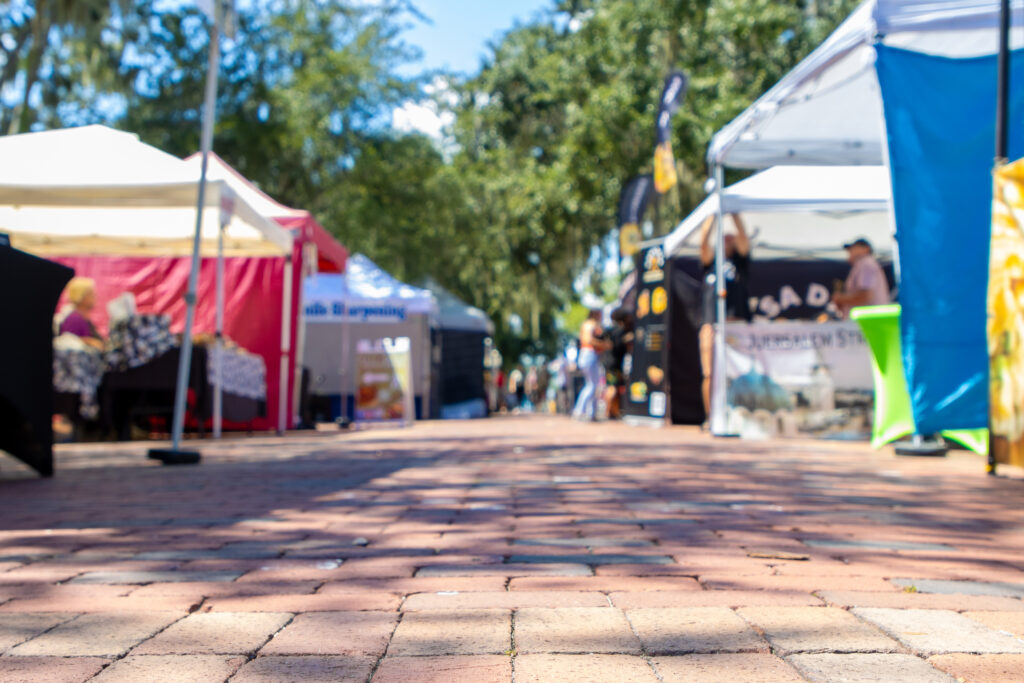A Closer Look: Emily Saveraid

SUZANNE BEHNKE Feb 20, 2018 | 10:31 pm
7 min read time
1,717 wordsArts and Culture, Business Record InsiderTalk to anyone about challenges in the business community and the answer comes across loud and clear: Workforce. Iowa needs more skilled workers, more highly educated workers, and simply just more workers with the latest statewide unemployment rate at 2.8 percent, different leaders have said.
New education and training programs that help train young Iowans are getting attention, but there is a longstanding organization that has been providing training to students and future workers for decades — 4-H.
I recently sat down with Emily Saveraid, who serves as the executive director of the Iowa 4-H Foundation, a 501(3)c organization that supports various causes for the statewide 4-H program. She started as executive director in July after working as the foundation’s development director for several years. The foundation operates with a staff of five, striving to support the statewide 4-H program. Previously, she held jobs in different areas with the Iowa Wine Growers Association, Bartels Lutheran Retirement Community and the Iowa State Fair. As we talked, Saveraid explained what the mission is for the Iowa 4-H Foundation and how that experience should be something employers look for in potential hires. She cited Ambassador to China Terry Branstad and KCCI’s Eric Hanson as Iowa 4-H alumni. The program has developed into including robotics clubs and 3-D printing projects.
4-H at its core is administered through USDA. And then USDA gives the land grant universities in each state purview over the 4-H programs {Iowa State University in Iowa}. The National 4-H Council is kind of like what we do in terms of fundraising for the program nationally and then we fundraise for the program statewide. And then we also hold 83 county endowments. So those are ways for folks to give to 4-H locally. So we are kind of like a pseudo community foundation.
We really kind of have all of the levels of giving folks an opportunity to support 4-H how they want to.
What are all the different things that the foundation does?
We are a wide-ranging organization, as is 4-H. The foundation itself was actually established in the ’40s around this idea of purchasing a 4-H camp. The leadership at the time, Iowa State leadership, involvement from the Meredith Corp. and local 4-H’ers, and the Iowa Farm Bureau was instrumental in all of this too, a group kind of got together and said we think 4-H’ers need their own camp. 4-H’ers, Boone County 4-H’ers in particular, went door to door to raise the first dollars to purchase 500 acres in Boone County for this 4-H camp. It’s like as grass-roots as you can get. They kind of determined they needed an organization around this so here comes the 4-H Foundation. Seventy years later, we still own the camp. It’s about 1,100 acres, it has grown, it’s just north of Madrid a little bit in Boone County. Camp is not as big a part of the ethos in Iowa. For some people it is and some states have a stronger camping programs. In Iowa, when you think of traditional 4-H, it’s very much centered around that county fair experience. That’s what people identify with.
Showing a sheep or sewing a dress. I failed at that.
But you know that’s part of the learning experience, the failure. You win some, you learn some, we kind of say. That’s our history, we still own that. We work with a management company to operate it and 4-H groups are still our primary clients. From there, it kind of grew to encompass a lot of other things. We also have a scholarship program; we give away about $130,000 worth of scholarships a year.
For someone who says the group is flying under the radar, that’s a large number.
It’s a big number. That’s part of what the foundation looks at and is thinking about. How do we make sure that opportunities for young people continue to be available knowing that college gets more and more expensive? How can we reward high-achieving 4-H alumni through college scholarships? We also have a financial aid program. We cover between $30 and $40 if there’s an enrollment fee. We have financial aid for out-of-county experiences, the state 4-H conference, the 4-H camp, all of those different things. We fund some of the extra things, the National 4-H Congress, the national 4-H conference, we fundraise and pay of those. We have a granting program with the state program. They tell us, “These are the things we need money for” and we then we fund them. A big one we’ve been involved with recently is Clover Kids; that’s the K-3 4-H program. It’s getting kids started in 4-H right away in a noncompetitive arena. It’s very much focused on the learning and interaction. (Clover Kids, with 10,000 statewide, has been around for 25 years. 4-H’ers can join the competitive program in fourth grade.)
How many kids are in the overall program?
In Iowa, 4-H touches over 100,000 young people. It’s really a pervasive program. That’s through the community clubs, what you think of as traditional 4-H, but it’s also through camps, after-school programs, in-school curriculum, basically any young person that gets six hours’ worth of contact with an extension professional is considered a 4-H’er.
Are there Des Moines-area 4-H programs?
Very much so. The extension office in Polk County is in Altoona. They’re really focusing on how do we take the tenets of 4-H, the skills and the properties … and how do we apply that to a different audience, especially a more urban audience, a more underserved audience. We really know that there’s so much that the 4-H program offers young people, the leadership skills, the communication skills, how to set goals, how to share what you’ve learned with other people, how to get engaged with your community— how do we take those and translate them to a different audience that most people would think 4-H isn’t for them because they can’t raise a cow. I can’t raise a pig.
How did you end up at the 4-H Foundation?
I was a nine-year 4-H’er in Linn County. I did the gamut of 4-H experiences. My folks weren’t raised on farms. We were that acreage kid. I had horses and sheep; those were kind of my projects. But I did the home improvement, visual arts, cooking, food and nutrition. As I got older and got more involved in more leadership types of things, county council, I was on the state 4-H council in high school, I actually served as a youth trustee on the 4-H Foundation board when I was in high school. It’s a fun, full circle experience.
Did the things you learned back then still help you now?
Absolutely. The thing that I think about the most, particularly about my time with the foundation as a young person, was really the connection with adults. And that’s a huge piece of 4-H is those youth-adult partnerships. And caring adults that aren’t your parents and can provide those leadership and role model opportunities. I always felt as a young person in whatever area I was in that those adults cared about what I had to think and what I had to say and wanted to know what i thought, and … they wanted to fully engage me in the process. … That gives you such confidence as you jump into your career where maybe you’re the youngest person in the room, or you’re the only female in the room. But you have that sense of understanding how to think through a process and think critically about a question and then share your opinion respectfully. That was huge.
When I think about 4-H it’s not the project or the exhibit, the raising a calf, the baking the bread or refinishing Grandma’s old dining room table. Those things are relevant because ultimately it’s the process that you are learning, it’s those other skills. You might be learning how to bake bread — which is great and a wonderful skill — but what else did you learn? You learned how to set a goal, you learned how to follow a process, you learned how to work through problems, you learned how to problem-solve, think critically about an issue. Then you learned to go to county fair and share with a judge all these learning skills. It’s just beyond this concept of the projects or the exhibits. It’s about the learning behind those projects and how that carries you through. That’s really where it becomes 4-H is for all young people. It doesn’t matter what you want to learn about; we have a process for giving you those skills and those opportunities.
When I think about how businesses perceive 4-H, I think of 4-H as really building soft skills and career readiness. It is giving young people an opportunity to explore a variety of things and to really think about how do I incorporate what I love to do into what my future career looks like. It certainly helped me home in on what I wanted to do. It’s building those communication skills, those team-building skills that sometimes you don’t get in school or a traditional educational environment. It really is an investment in our future communities. That’s how I look at it and that’s what I communicate to donors. We don’t have bricks and mortar, but our 4-H’ers are the bricks and mortar of our future communities. … I hear from some of our business partners that they look for 4-H on a resume because they know the type of skills that those young people bring to the table.
I met my husband through 4-H, actually. I like to say I met my husband and I met my first boss at the Iowa State Fair Blue Ribbon Foundation through 4-H. I owe a lot to the 4-H program. But we are kind of crazy. We raise Percheron draft horses, the big, black ones. That’s our hobby/crazy endeavor. We like to joke some people go on fancy vacations, some people have boats, we feed horses.









